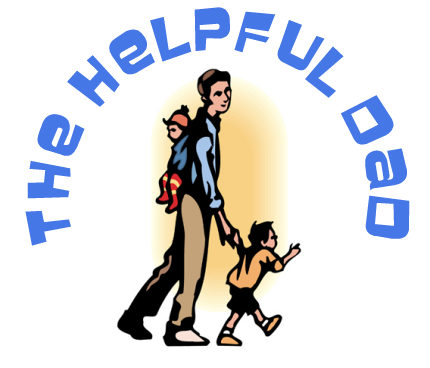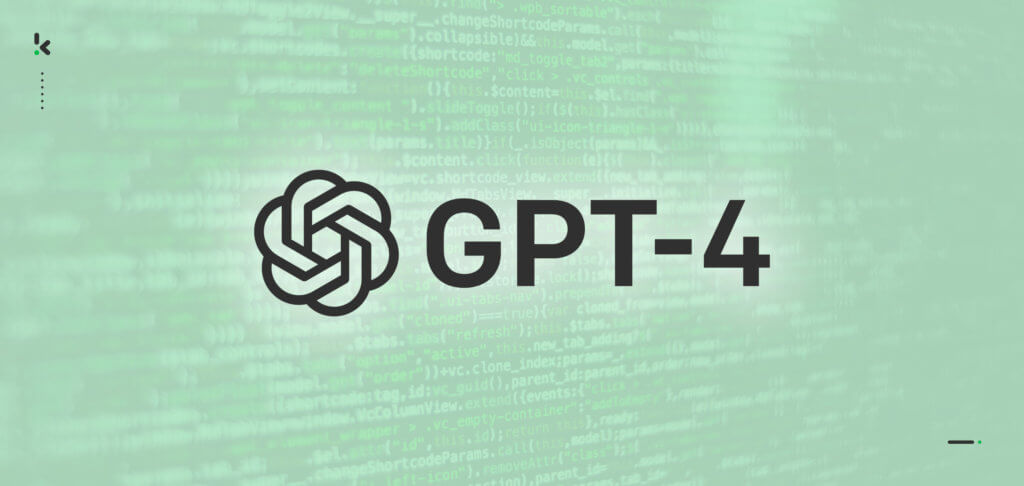There’s a bunch of AI Chatbots around, but ChatGPT has emerged as my go-to favorite. From answering queries to generating creative content, ChatGPT has a wide range of applications. In this article we’ll talk about ChatGPT’s FAQs, Troubleshooting tips, Advanced Features, and also discuss examples of Practical Applications for ChatGPT. My hope is that by better understanding what ChatGPT can/can’t do, you’ll get the most out of this incredible tool.
General FAQs
What is ChatGPT?
ChatGPT is an artificial intelligence model developed by OpenAI. It uses machine learning, specifically a transformer model, to generate human-like text based on the input it receives. ChatGPT is designed to understand and generate natural language, making it useful for a variety of applications such as customer service, content creation, and personal assistance.
How does ChatGPT work?
ChatGPT is based on the GPT-4 architecture, which stands for “Generative Pre-trained Transformer 4.” It works by analyzing large datasets of text to learn patterns, context, and relationships between words. When you input a query, ChatGPT processes the input through multiple layers of neural networks to generate a coherent and contextually relevant response.
Is ChatGPT free to use?
ChatGPT offers both free and subscription-based access. The free version allows users to experience basic functionalities, while the subscription plan, known as ChatGPT Plus, provides enhanced features such as faster response times, priority access during high-demand periods, and access to the latest updates and improvements.
What are the limitations of ChatGPT?
While ChatGPT is a powerful tool, it has limitations:
- Context Length: ChatGPT has a limit on how much context it can consider, which can affect its ability to generate long, coherent responses.
- Accuracy: Although it generates highly accurate responses, it can sometimes produce incorrect or nonsensical answers.
- Bias: The model can reflect biases present in the training data, which means it might generate biased or culturally insensitive content.
- Creativity vs. Factuality: ChatGPT might prioritize creative or plausible-sounding answers over strictly accurate information.
Is ChatGPT safe to use?
OpenAI has implemented several safety measures to make ChatGPT safe for users. These include filtering mechanisms to block inappropriate content and constant monitoring to improve the model’s responses. However, users should still exercise caution and not rely solely on ChatGPT for sensitive or critical information.
Quick Tips to get the most benefit from ChatGPT
How can I get the best responses from ChatGPT?
Here are some tips to get the most effective responses from ChatGPT:
- Be Clear and Specific: Clearly state your query or command. Vague questions can lead to vague answers.
- Provide Context: The more context you provide, the better ChatGPT can understand and respond accurately.
- Ask Follow-up Questions: If the initial response isn’t sufficient, ask follow-up questions for clarification or more detail.
- Use Proper Grammar: Proper grammar helps ChatGPT understand your input more accurately.
How can I make ChatGPT more creative?
To elicit more creative responses, you can:
- Set the Tone: Indicate the style or tone you want (e.g., “Write a humorous story about a dragon”).
- Provide Scenarios: Give specific scenarios or characters to build upon.
- Encourage Creativity: Directly ask for creative or imaginative answers.
How can I ensure factual accuracy in ChatGPT’s responses?
For more accurate responses:
- Ask for Sources: Request sources or references for factual information.
- Cross-Check Information: Verify the responses with reliable external sources.
- Specify Desired Accuracy: Indicate if you prefer factual accuracy over creativity.
Can ChatGPT understand and generate code?
Yes, ChatGPT can understand and generate code snippets in various programming languages. When asking for code-related assistance:
- Be Specific: Clearly describe the problem or the function you need.
- Provide Examples: Give sample inputs and desired outputs.
- Ask for Comments: Request that the generated code include comments for better understanding.
ChatGPT Advanced Features
What is ChatGPT Plus?
ChatGPT Plus is a subscription plan that provides enhanced access to ChatGPT for a monthly fee. Benefits include:
- Priority Access: Reduced wait times and priority access during peak hours.
- Faster Response Times: Enhanced server performance for quicker responses.
- Early Access to Features: First access to new features and improvements.
How do I integrate ChatGPT into my applications?
Developers can integrate ChatGPT into their applications using OpenAI’s API. The API allows for custom implementations and can be used in various applications such as chatbots, virtual assistants, and automated content generation. To get started:
- Sign Up: Create an account on the OpenAI platform.
- API Key: Obtain an API key from the OpenAI dashboard.
- Documentation: Follow the API documentation for instructions on integration and usage.
How can I customize ChatGPT for specific tasks?
Customization can be achieved through:
- Fine-Tuning: Use your own datasets to fine-tune the model for specific tasks or industries.
- Prompt Engineering: Craft specific prompts to guide the model towards desired behaviors or responses.
- Domain-Specific Training: Train the model with domain-specific data to improve its expertise in a particular area.
Common Troubleshooting
Why is ChatGPT not responding?
If ChatGPT is not responding:
- Check Your Connection: Ensure you have a stable internet connection.
- Server Status: Check if OpenAI’s servers are down or experiencing issues.
- Clear Cache: Clear your browser cache or try a different browser.
- Update Browser: Make sure your browser is up to date.
Why is ChatGPT giving incorrect or irrelevant answers?
If you receive incorrect or irrelevant answers:
- Rephrase the Query: Try rephrasing your question or providing more context.
- Be Specific: Ensure your question is clear and specific.
- Limit Complexity: Avoid overly complex queries in a single request.
How can I report a problem with ChatGPT?
To report a problem:
- Contact Support: Use the support options provided by OpenAI on their website.
- Feedback: Provide feedback directly through the ChatGPT interface if available.
- Community Forums: Participate in OpenAI community forums to report issues and get assistance from other users.
Privacy and Security
How does ChatGPT handle my data?
OpenAI has strict policies regarding data handling:
- Data Use: User interactions are used to improve model performance but are anonymized to protect privacy.
- Data Retention: Personal data is not retained beyond the interaction session unless explicitly stated.
- Security Measures: Advanced security measures are in place to protect user data from unauthorized access.
Can I delete my data from ChatGPT?
Yes, you can request the deletion of your data:
- Account Settings: Check your account settings for data deletion options.
- Contact Support: Contact OpenAI support for assistance with data deletion requests.
Practical Applications
How can businesses benefit from ChatGPT?
Businesses can leverage ChatGPT for various purposes:
- Customer Support: Automate customer service with AI chatbots to handle inquiries efficiently.
- Content Creation: Generate marketing content, blog posts, and social media updates.
- Data Analysis: Summarize and analyze data reports for quick insights.
- Training and Development: Provide interactive training modules and educational content.
How can educators use ChatGPT?
Educators can use ChatGPT in multiple ways:
- Tutoring: Provide personalized tutoring and answer student queries.
- Content Creation: Generate educational materials, lesson plans, and quizzes.
- Language Learning: Assist with language learning by providing practice conversations and translations.
- Research Assistance: Aid in research by summarizing articles and suggesting references.
How can individuals use ChatGPT for personal development?
Individuals can benefit from ChatGPT for personal growth:
- Learning: Use ChatGPT as a study aid for various subjects.
- Creativity: Generate creative writing prompts, stories, or poems.
- Planning: Help plan activities, trips, and personal projects.
- Language Practice: Practice new languages through interactive conversations.
Future Developments
What is the future of ChatGPT?
According to OpenAI, the future of ChatGPT includes:
- Enhanced Capabilities: Continuous improvements in understanding and generating natural language.
- Broader Applications: Expanding use cases in various industries and personal applications.
- Ethical AI: Ongoing efforts to ensure ethical use and reduce biases.
- Integration: Deeper integration with other technologies such as virtual reality and IoT devices.
How can I stay updated with ChatGPT developments?
To stay updated:
- OpenAI Blog: Follow the OpenAI blog for the latest news and updates.
- Newsletters: Subscribe to OpenAI newsletters.
- Community Forums: Participate in community forums and discussions.
- Social Media: Follow OpenAI on social media platforms.
Give ChatGPT a try – you’ll be glad you did.
ChatGPT represents a significant advancement in AI technology, providing valuable assistance across various domains and I use it nearly every day now. By understanding its capabilities, limitations, and best practices, users can maximize the benefits of ChatGPT in both personal and professional settings and I hope this article helps you find a few reasons to give it a try!
What to read next?
- ChatGPT FAQs, Troubleshooting, Advanced Features, and Practical Applications
- Understanding ChatGPT vs GPT-4 vs DALL-E – When do you use which one?
- 10 Tips for using ChatGPT + a detailed example of how a student can use ChatGPT for school projects.
- Google Bard vs ChatGPT – which one is best?
- How to Recover Deleted Files
- How to Secure your Wi-Fi Network – 12 tips
- How to Set Up Dual Monitors: A Comprehensive Guide for Mac and Windows PC Users
- How to Speed Up a Slow Computer
- How to Encrypt your Emails for Enhanced Privacy and Security – GMAIL, Outlook, Apple Mail, and more
- How to use ChatGPT – Tips, Best Practices, Examples, and Use Case Scenarios

